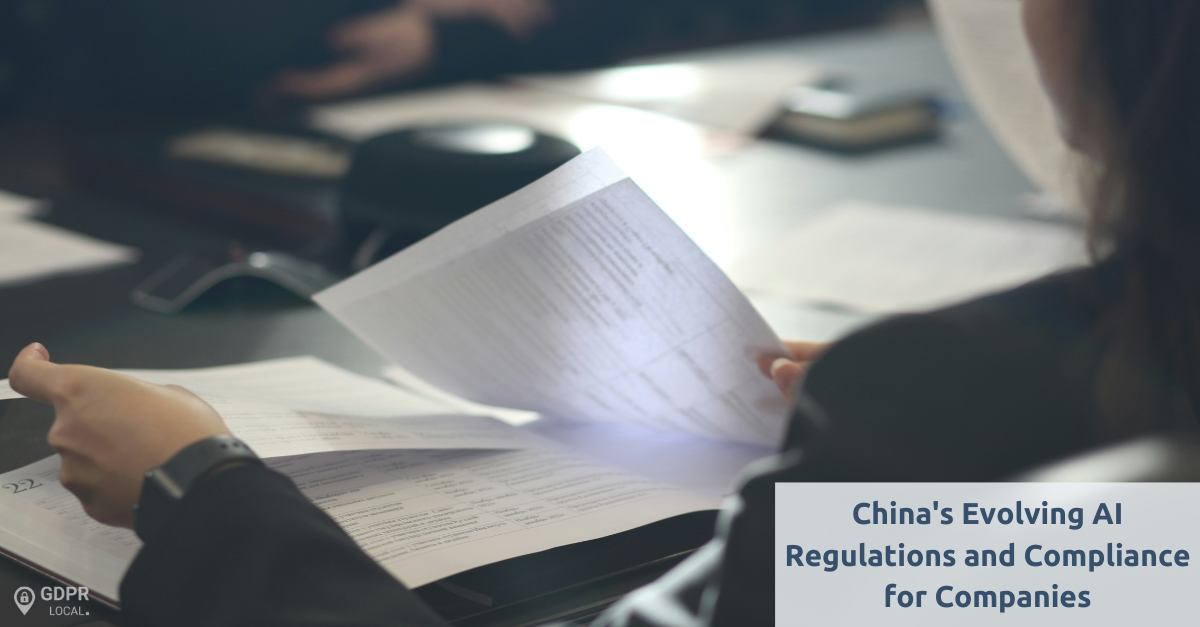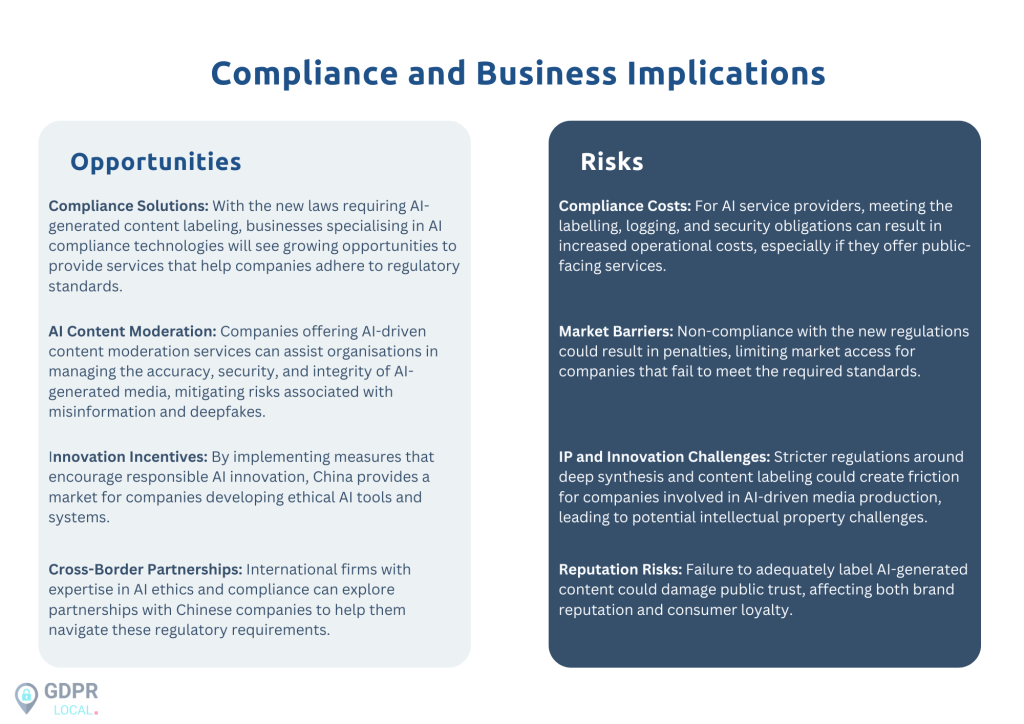
China’s Evolving AI Regulations and Compliance for Companies
As artificial intelligence (AI) becomes a central force driving innovation across various industries, governments worldwide are stepping up to regulate its development and use. China, in particular, is moving swiftly with a series of comprehensive regulations aimed at fostering AI innovation while ensuring security, ethical compliance, and public trust. For companies operating in or dealing with China, staying informed about these regulations is essential for successful market entry and ongoing compliance.
Key AI Regulations in China
- Generative AI Measures (Effective August 15, 2023)
China is among the first countries to regulate generative AI technologies such as those used in AI content creation. These measures address privacy concerns, data security, and content screening while promoting innovation. They also apply to both domestic and foreign companies offering AI services in China, emphasising transparency and security without stifling technological development. - Deep Synthesis Provisions (Effective January 10, 2023)
With the rise of deepfake technology, the Deep Synthesis Provisions are designed to regulate how AI can be used to alter content, including videos, voices, and images. AI-generated content must be clearly labelled, and companies must comply with strict regulations regarding the ethical use of this technology. These rules aim to prevent misuse and safeguard the integrity of online content. - Ethical Review Measures (Effective December 1, 2023)
These measures establish ethical guidelines for AI development and scientific research, particularly in fields that may involve humans and animals or have significant societal impacts. Any AI project deemed ethically sensitive requires a review by internal committees and external experts to ensure it meets national ethical standards. - Algorithm Recommendation Provisions (Effective March 1, 2022)
These regulations govern the use of algorithms in AI systems that can influence public opinion or drive social engagement. Companies using AI-driven recommendation systems, such as those found in social media or news platforms, must disclose their algorithms to Chinese authorities. This is part of an effort to ensure that AI technologies are used responsibly and transparently.
New Draft Regulation: AI-Generated Content Labelling (Proposed September 14, 2024)
China’s regulatory approach continues to evolve with the introduction of a new draft regulation titled Measures for Labelling Artificial Intelligence-Generated Synthetic Content. Released on September 14, 2024, by the Cyberspace Administration of China (CAC), this regulation aims to standardise the labelling of AI-generated content to safeguard public interests and protect the rights of citizens, organisations, and legal entities.
Key Provisions:
- Scope of Application
The Draft Measures apply to network information service providers offering AI-generated content services to the public in China. This includes algorithm recommendation service providers, deep synthesis service providers, and generative AI service providers. Internal research or non-public-facing uses of AI-generated content are exempt. - Obligations for Service Providers and Platforms
Service providers must clearly outline in user agreements the methods and styles for labelling AI-generated content. They are required to ensure that all AI-generated content is labelled both explicitly (visible labels) and implicitly (embedded metadata), with platforms being responsible for verifying labels and ensuring compliance. Content without labels may be provided under strict conditions, including user liability agreements. - Compliance and Enforcement
All service providers must follow national labelling standards and submit their content labelling mechanisms during algorithm filings and security assessments. Violations could result in penalties under applicable laws. - Implementation Timeline
While the Draft Measures are scheduled to take effect in 2024, the final implementation date will be determined following public consultation, which will run until October 15, 2024. The mandatory national standard draft for labelling methods will remain open for feedback until November 13, 2024.
This proposed regulation represents a significant step in mitigating the risks associated with AI-generated content, including deepfakes and misinformation. By standardising content labelling, China aims to strengthen public trust in AI technologies and address growing concerns over the misuse of synthetic content.
Compliance and Business Implications
For both international and local companies, China’s AI regulations present both opportunities and challenges. The country’s emphasis on AI innovation creates a fertile ground for development, but companies must navigate a complex regulatory landscape that prioritises transparency, privacy, and ethical use.
Compliance involves several key actions:
- Algorithm Filing: Companies using AI systems that influence public discourse are required to file these systems with the Chinese government.
- Labelling AI Content: Under the Deep Synthesis Provisions and the new Draft Measures, AI-generated content must be clearly labelled to differentiate it from human-generated content.
- Ethical Considerations: Companies must consider the ethical implications of their AI projects and submit to reviews for sensitive activities, ensuring that their technologies do not compromise public safety or well-being.
As AI-generated content becomes more prevalent, companies providing AI solutions and services can benefit from increased demand for compliance tools, content moderation technologies, and labelling systems that align with the new regulatory requirements.

This balance of risk and opportunity emphasises the importance of strategic planning for AI-driven businesses looking to operate in China’s regulated AI environment.
Preparing for the Future
China’s proactive approach to AI regulation highlights the importance of balancing innovation with ethical and societal responsibility. Companies looking to enter the Chinese market or work with AI technologies in China should prioritise compliance with these evolving laws to avoid penalties and ensure long-term success.
Keeping pace with regulatory developments will be crucial as the global conversation around AI governance continues to grow. With China’s AI laws shaping the future of AI both locally and internationally, businesses must remain agile and informed to thrive in this dynamic environment.
Disclaimer: This blog post is intended solely for informational purposes. It does not offer legal advice or opinions. This article is not a guide for resolving legal issues or managing litigation on your own. It should not be considered a replacement for professional legal counsel and does not provide legal advice for any specific situation or employer.